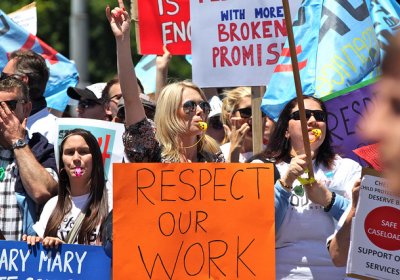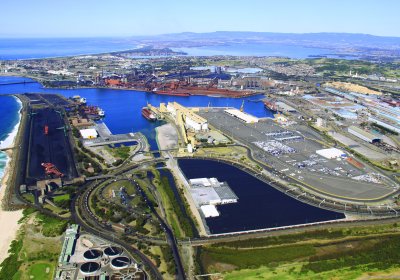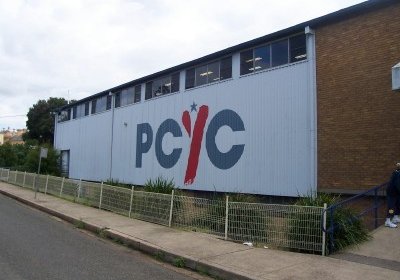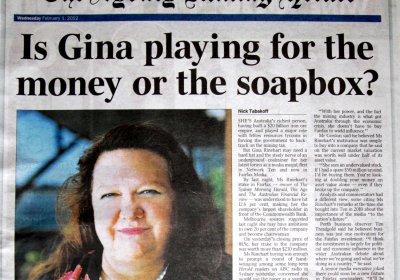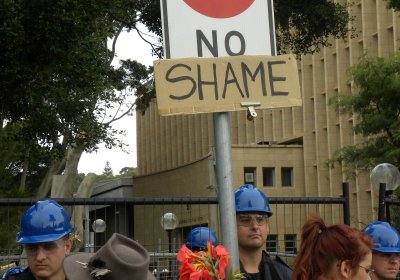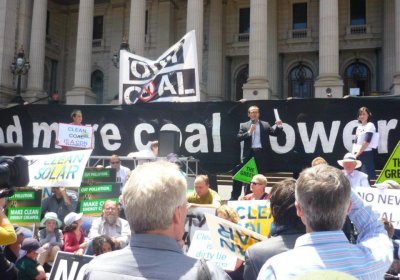Thousands of Victorian nurses, mental health workers, public servants and others have been trying to negotiate new enterprise bargaining agreements with the Coalition government.
Premier Ted Baillieu's intransigent state government has insisted it will not agree to any pay rises above 2.5% a year without productivity trade-offs.
The exception was the police force, which won a 4.5% annual pay rise a few days after more than 500 police violently evicted Occupy Melbourne protesters from City Square.
Australia
Socialist Alliance candidate Liam Flenady, who will run in the March 24 Queensland state election, announced the party's key policy pledge on February 4.
The policy said: “Set up a new Queensland State Bank: Provide low-interest loans to householders, farmers and small business. Stop the private banks ripping off the community.”
Port Kembla Coal Terminal workers began a week-long strike on February 1. The action is a result of management scaling back conditions during negotiations over a new enterprise agreement. BHP Billiton operates the coal terminal on behalf of its owners, which include Xstrata, Peabody Energy, Gujarat NRE and Centennial Coal.
Management’s latest offer triggered Construction Forestry Mining Energy Union (CFMEU) delegates to take industrial action. About 100 workers had previously voted to approve a seven-day stoppage from February 1, unless management made a late offer
In the week after the January 26 Aboriginal Tent Embassy anniversary celebrations and protests, the mainstream media poured out a continuous stream of negative, scathing commentary on the Tent Embassy and the people that defended it.
Ignoring the thousands of people gathered for three days to recognise the achievements of the Tent Embassy and protest against ongoing attacks to Aboriginal people today, the corporate media ran stories of an “angry mob” that surrounded a Canberra restaurant and “besieged” Prime Minister Julia Gillard and Liberal leader Tony Abbott.
In an historic decision, Fair Work Australia (FWA) awarded pay rises of 19-41% to 150,000 mostly female workers in the social and community services sector (SACS) on February 1.
It was the most important equal pay case since equal pay for work of equal value was formally recognised in 1972.
The decision awards an extra 4% rise in loadings, designed to recognise impediments to bargaining in the industry. Workers will also be entitled to any wage review by FWA each year. The pay rises are effective from December 1, to be phased in over eight years.
A looming staffing problem in Western Australia's 26 Police and Community Youth Centres (PCYC) is exposing premier Colin Barnett and the Liberal government's disregard for youth services and the complete hypocrisy of the law and order rhetoric that crops up at every state election.
PCYCs are formally independent non-profit organisations, supported by the state through the provision of police officers as full-time centre managers.
Recent national figures published by the Sydney Morning Herald show the rate of youth unemployment in Australia is well above the national average, hitting 17.3%.
The figure is more than triple national unemployment, which stood at 5.2% in December. Almost one in five people aged 15 to 19 and not studying are out of work.
State planning minister Brad Hazzard released draft guidelines to regulate NSW wind farms in December. The guidelines allow anyone with a residence within two kilometres to veto a wind power project.
If the guidelines become law, this would put the brakes on the wind industry, as the coal seam gas industry bolts ahead.
The mainstream media’s “impartial and balanced” fig leaves began to slip on January 31, revealing their corporate genitalia for all to see.
Australia’s richest person, billionaire mining magnate Gina Rinehart, had begun buying more shares in Fairfax Media, increasing her stake towards 15% and raising questions about media impartiality.
Fairfax journalists scrambled to report the news, tying themselves in knots over how much to admit about the corporate nature of their media outlets and whether Rinehart could have any influence on editorial input.
The trees are coming down. Against a backdrop of grey skies and at times torrential rain, to a soundtrack of chainsaw, wood chipper and howls of protest and grief from anguished residents and exhausted protesters, the magnificent, healthy, 80-year-old iconic cathedral arch of the Laman Street Fig Trees in Cooks Hills, Newcastle, is being reduced to wood chip as this goes to press.
Sixty riot police guard the area, which is bordered by a double ring of tall temporary perimeter fencing. Onlookers shrieked in outrage and amazement as a large bird’s nest was fed into the mulcher.
February 1 was the day of the most vibrant climate rally seen in Melbourne for some time, with nearly 500 protesters overflowing from the steps of the state parliament house to call on the federal and state governments to revoke their funding of HRL, Victoria’s proposed new coal-fired power plant.
The rally, called by grassroots climate collective Quit Coal, was held principally to influence the federal government, which is currently reviewing HRL’s Howard-era $100 million grant.
About 200 unionists gathered at King George Square on February 2 for a meeting to commemorate the centenary of the 1912 Brisbane General Strike, one of the first of its kind in the world. The Rail Tram and Bus Union (RTBU) and the Queensland Council of Unions (QCU) jointly sponsored the meeting.
Speakers, including RTBU state officials Owen Doogan and David Matters, ALP Senator Claire Moore, and QCU assistant secretary John Battams outlined the history of the 1912 strike and its significance for today. Murri elder Bobby Anderson gave a welcome to country.
- Previous page
- Page 773
- Next page
